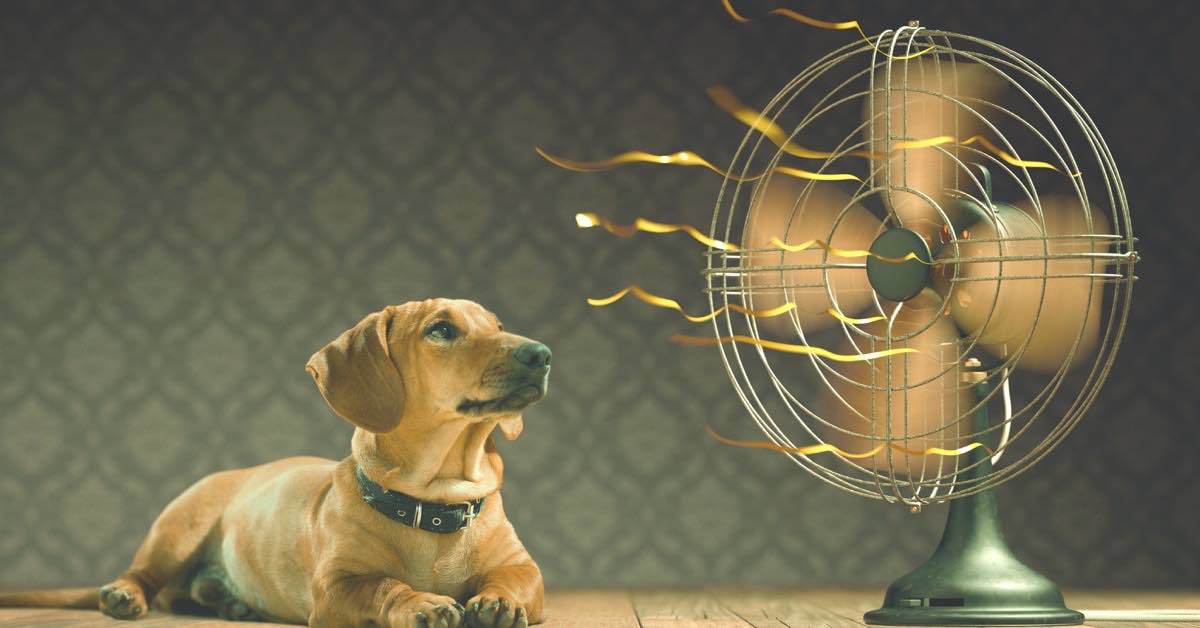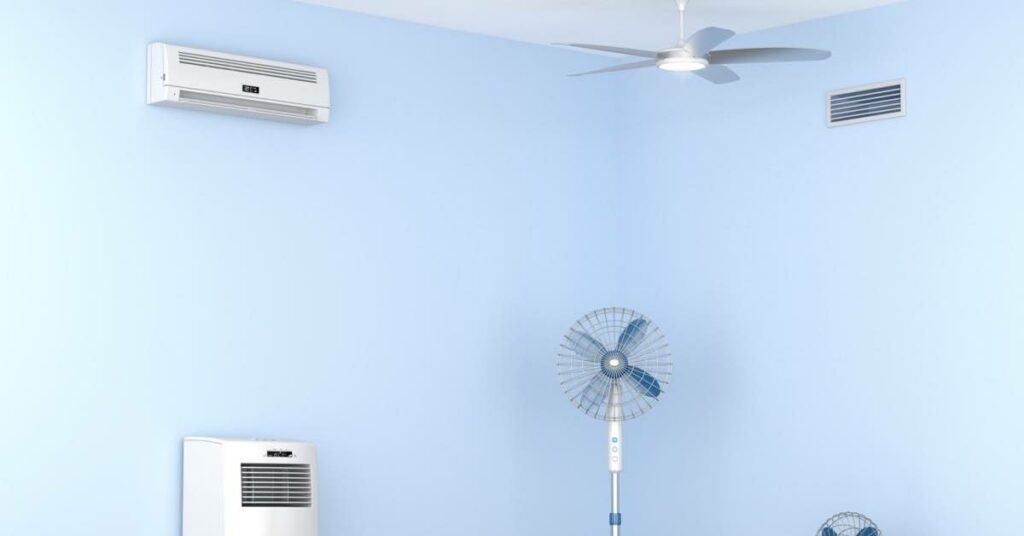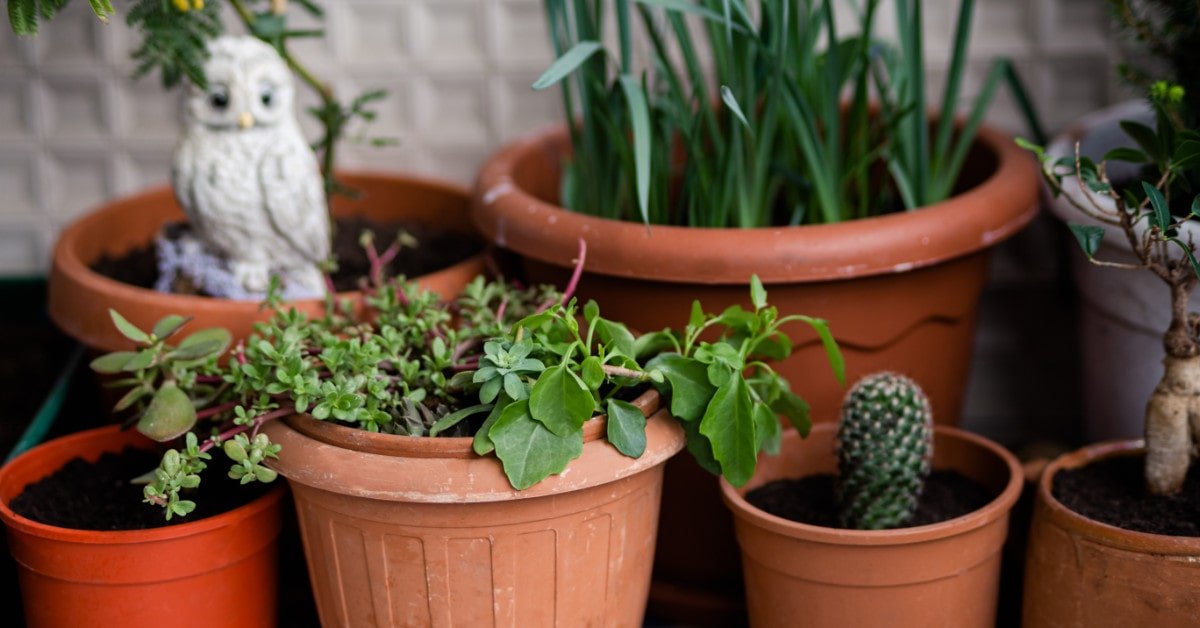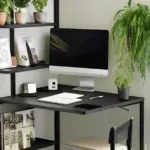The Basics of Air Circulation
Air circulation is the movement of air in a room or building. It is crucial to have good air circulation because it helps remove pollutants and dust from the air, making the environment more comfortable.

Air purifying plants are one way to improve air quality. They need less maintenance than other types of plants, and they can be used in office spaces and homes. They work by converting harmful chemicals into less harmful ones, absorbing dust and pollen particles, and releasing oxygen into the atmosphere.
Natural air purifiers are another way to improve air quality. These devices use natural materials such as bamboo, cedarwood, charcoal, or sandalwood that release negative ions, which help neutralize odours and pollutants.
How Do Different Ventilation Systems Work and What are the Benefits?
Ventilation supplies fresh air to and removes harmful toxins from an enclosed space such as a bedroom. Ventilation includes the exchange of air with the outside and the circulation of air within the building.
There are two types of ventilation systems: natural and mechanical. The most popular home ventilating systems are mechanical ventilation systems that use a fan to push fresh air into the house.
This is done to make up for any gaps in natural airflow caused by things like open doors or windows. Natural ventilation works through windows and doors opening and closing, but it can’t be relied on during cold weather when windows are closed.
An excellent product for is circulation is the Vornado Air Circulator 660 (large). It achieves whole room vortex air circulation with multidirectional air flow.
You Should Have More Than One Ventilation System in Your Home to Keep it Healthy
Ventilation systems are important for the health and safety of your home. They help reduce the risk of fires, so it’s essential to have more than one ventilation system in your home.
Ventilation systems are an important part of a healthy home because they help prevent fires and keep air quality high.
There are many benefits to having a ventilation system in your home, but one that stands out above all the others: reducing fire risks.
Is it Better to Control the Air Circulation Yourself or Install an Automated System?
Air circulation is a must for any home. It can be achieved by installing an automated system or controlling it oneself.
If you want to control the air circulation yourself, you should know that different types of airflow systems can be installed in your home.
Depending on the type of system, you will need to install a ventilator in your home and ensure it is working correctly.
On the other hand, if you want to install an automatic ventilation system in your house, you will have to decide on a specific ventilation system according to your needs and budget. Ventilation systems can be installed in new homes and old ones as long as they are not too old or too small.
What is the Minimum Amount of Air Circulation You Need in Your Home?
The amount of air you need in your home depends on the size of the room, the number of occupants, and how often you are opening doors and windows.
The Occupational Safety and Health Administration recommends ventilating a room at least six times per hour. This is equivalent to one minute per hour for a 10 square meters room with two occupants.

Improving Your Air Circulations for Health
Improving your air circulation can improve your health and well-being. Poor air quality can lead to health problems such as asthma, allergies, and other respiratory problems.
There are many ways to improve your air circulation, and one of them is by using an air purifier. An air purifier works by removing pollutants from the air you breathe in.
This includes things like dust and allergens that can cause serious health problems if not removed from the air we breathe every day.
Another way to improve your home’s or office’s ventilation is by using an ionizer or ozone generator to produce negative ions, which will help remove the foul odour, harmful microorganisms and other particulate matter.
Home Airconditioning 101: Choosing the Right Air Conditioner for Your Needs
Understanding How Air Conditioning Works
Air conditioning units are a vital part of the modern home. They keep us cool in the summer and warm in the winter. This section will explore how air conditioning units work, what they do, and what you should know about them for your own home.
The function of an air conditioner is to remove heat from a room or house. The unit passes cooled refrigerant through coils filled with cold water and then blows it into the room. The coils are connected to a compressor that compresses the refrigerant until it becomes hot enough to produce cold air.
How to Choose the Right Size of Air Conditioner For Your Home
Choosing the right air conditioner size for your home can be a difficult task. However, it is necessary to ensure that you get the right size for your home.
If you have a larger space, you should go with a central air conditioning unit. If you have a smaller space, you should go with a window unit. Find a size that best suits your needs and take advantage of the many benefits of air conditioning.
Using a central air conditioning unit can be beneficial to large homes because it can cool multiple rooms at once and cool down the entire house.
However, if you have a smaller space, window units are better because they only cool one room at a time and are much cheaper to run.
Choosing Between Window and Central Air Conditioners
Window air conditioners are not as efficient and powerful as central air conditioners. Central air conditioners are more expensive to purchase, but they will pay for themselves in the long run because they save on energy costs.
Window units are less expensive to purchase and do not require ample installation space. However, window units cannot cool a whole house as central air conditioning can. Window units also have a lower cooling capacity than central air conditioning.
Central Air Conditioning is more expensive to purchase, but it will pay for itself in the long run by saving on energy costs. Central Air Conditioning can cool an entire house, unlike window units which only cool one room at a time.
Air Filter Basics: What’s Important to Know?
Air filters are an essential component of your AC unit. They filter out allergens, dust, and other particles that can get into the system. If your air filter is clogged or dirty, it can create problems for your system.
Air filters come in a variety of types and sizes. The type you choose will depend on the size of the air filter housing in your unit and how much air flows through it.
The pro series filters for a c unit are best for larger homes with many people who suffer from allergies or asthma. This is because they have a higher MERV rating (Minimum Efficiency Reporting Value) which means they remove more allergens from the air than other filters.
How to Properly Circulate Air in Your Home to Improve Your Indoor Air Quality
What is Indoor Air Quality?
Indoor air quality is your air inside your home or office. It can be affected by many factors such as building materials and furnishings, cleaning products, pets, smoking, cooking and more.
Indoor air quality is essential to consider when purchasing a new home or office space. If you have allergies or asthma, it’s important to pay attention to what materials are in the room and what type of cleaning products are used.
Types of Ventilation Systems
Ventilation systems are an important part of the HVAC system and can be used to control the quality of air in a space.
There are three types of ventilation systems: natural, mechanical, and hybrid.
Natural ventilation is the process of using outside air to cool or heat a space. It uses windows, doors, or other openings in a building to allow fresh air to circulate inside.
Mechanical ventilation is when the building’s HVAC system forces air from the outside into the building through ducts.
Hybrid ventilation is when both natural and mechanical ventilation systems are used to create a comfortable environment for people inside.
Improving Indoor Air Quality
The need for clean air has become an important issue in recent years. Pollution is a significant problem in most metropolitan areas, and it can be challenging to escape it indoors.
This can lead to serious health problems, especially for individuals with asthma or other respiratory conditions. Fortunately, there are various ways to improve the quality of the air inside your home or office building.
A filterless furnace is one option that may provide relief from poor indoor air quality. These furnaces do not use any filters, which means they will not remove any particles from the air before distributing them throughout your home or office building.
This may seem like a negative aspect of this type of furnace, but there are many benefits. For example, these furnaces are much more energy-efficient than traditional furnaces and require less power to operate.
A Case for Installing a Whole-Home Ventilation System
A whole-home ventilation system is a system that provides fresh air to every room in the house. It does so by drawing air from the outdoors and distributing it throughout the house. This ventilation system is often used in areas with large homes and high ceilings or in climates where outdoor air quality is poor.
Whole-home ventilation systems are not a new concept, but they are becoming more popular as people become more aware of the dangers of indoor pollutants such as radon, formaldehyde, and volatile organic compounds (VOCs). Ventilation systems help remove these pollutants from your home’s environment, which can improve your health.




